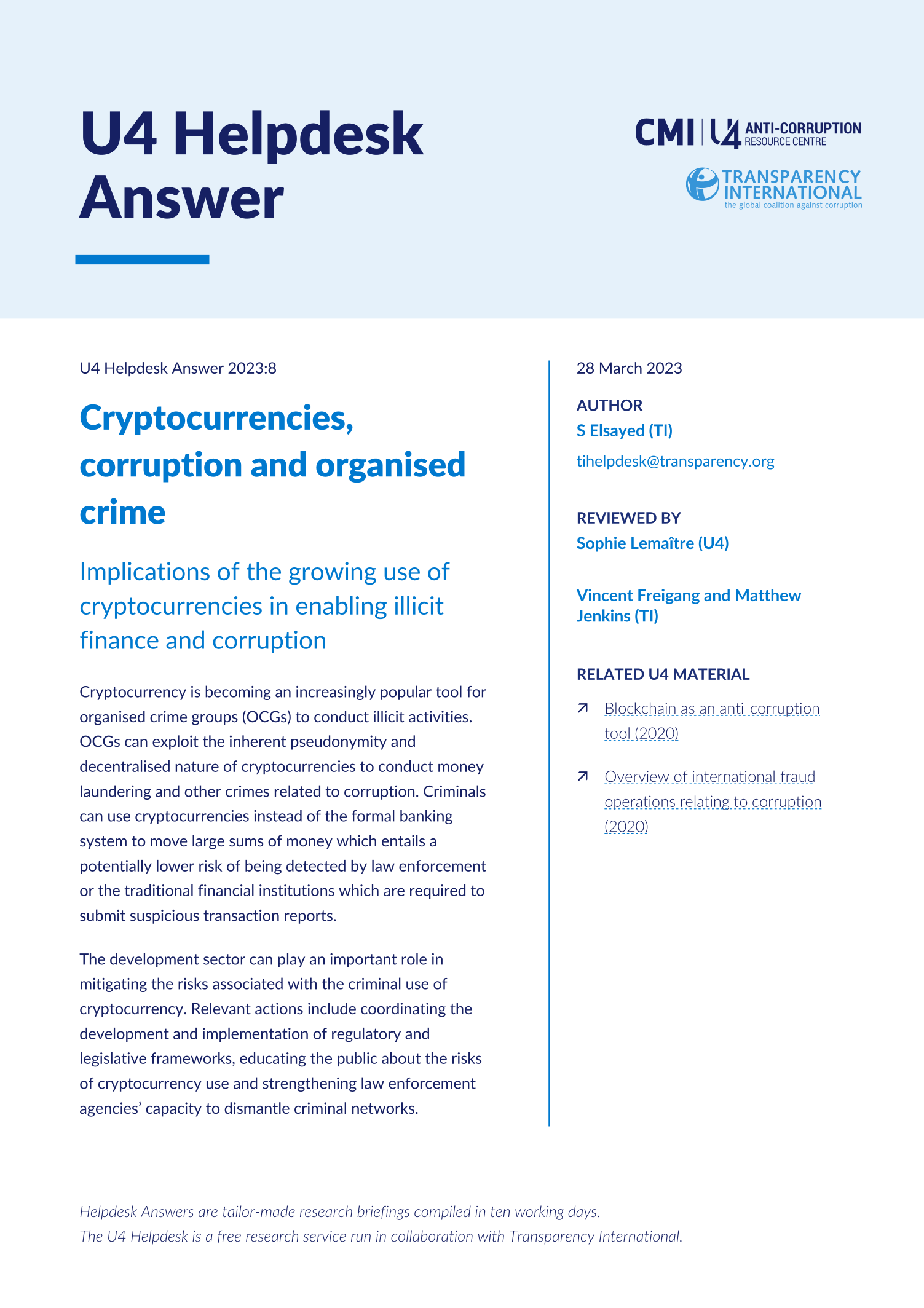Main points
- Cryptocurrency is not only restricted to cybercrime but is used for all types of crimes that involve the transmission of monetary value. This includes money laundering, financial sanctions evasions and other corruption related crimes such as bribery and embezzlement.
- There are constraints associated with the use of cryptocurrencies in criminal activities, such as the volatile value fluctuations, which contribute to the reluctance of criminals to use cryptocurrencies for long-term investments.
- International development agencies can play a role in mitigating the criminal use of cryptocurrencies. This includes coordinating the development and implementation of regulatory and legislative frameworks, encouraging bilateral and multilateral coordination to establish networks for experience sharing, and supporting platforms for public-private collaboration.
- However, resources spent by donors to curb crypto-related corruption imply an opportunity cost. Donors will need to determine whether the same resources would be better spent on improving traditional law enforcement practices or other development priorities.
- This is a pertinent consideration given that although the use of cryptocurrency in criminal activities is increasing, cryptocurrency transactions related to criminal activities represent only a limited share of the criminal economy compared to cash.


